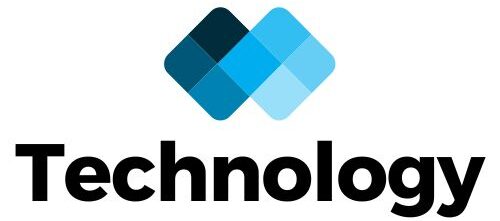The question “is Atlas a good AI tool Reddit” has been circulating through various online forums as users engage in discussions about the platform’s capabilities. As Atlas AI offers innovative solutions for geospatial intelligence and data analysis, many have taken to Reddit’s vibrant community to share their experiences—both positive and negative. This article serves as an exploration of these conversations, diving deep into user sentiments, insights, and perspectives on Atlas AI’s performance.
The Initial Excitement: A New Frontier in Geospatial Intelligence

Before any technology reaches the point of scrutiny, there exists a period of enthusiasm that accompanies its introduction. Such was the case with Atlas AI, as early adopters embraced the platform’s potential to make geospatial data more accessible and insightful.
A User-Friendly Approach to Complex Data
One of the standout features that users immediately appreciated was Atlas AI’s intuitive interface. The platform was designed to cater to a broader audience, including those who might not possess extensive technical expertise in GIS (Geographic Information Systems). Users from subreddits like r/dataisbeautiful and r/gis were quick to express how refreshing it was to have a powerful tool that simplified complex spatial analyses.
The feedback revealed a sense of excitement. Users shared screenshots of visually striking data visualizations that Atlas AI generated effortlessly. These visualizations showcased intricate relationships between datasets, making them easily comprehensible. For many users, this was a breath of fresh air—an opportunity to engage with geospatial data without needing years of experience or advanced training.
However, while initial impressions were overwhelmingly positive, they also set a high bar for future performance. The expectation for seamless functionality and impressive outputs quickly became the standard by which users measured Atlas AI.
Diverse Applications Across Industries
Atlas AI’s versatility opened doors across various sectors such as urban planning, environmental monitoring, business intelligence, and academic research. Users on r/datascience expressed their eagerness to utilize the platform for different projects, sparking collaborative efforts and knowledge sharing within the community.
This multi-faceted approach to applications led to diverse discussions about the platform’s potential impact. Urban planners envisioned using Atlas AI to optimize city layouts based on real-time data, while environmentalists expressed hope that the tool could facilitate better decision-making for natural resource management. Each of these use cases added to the budding narrative surrounding Atlas AI, fostering a sense of community among users who were excited about the possibilities.
User Feedback: Concerns Begin to Surface

As user engagement grew, so did the scrutiny of Atlas AI’s performance. Over time, a number of concerns began to emerge, revealing a more nuanced landscape of user sentiment.
Data Accuracy: A Critical Concern
One of the first red flags raised by users was related to data accuracy and reliability. While Atlas AI promised insightful geospatial data analysis, discrepancies between its findings and established data sources led many to question its credibility.
For instance, users comparing Atlas AI’s population density figures with census data noticed significant deviations. Comments like “I’ve been comparing Atlas AI’s population density data with census data, and there seems to be a significant difference” highlighted a growing concern over the integrity of the information users relied upon. When dealing with critical issues like urban planning or resource allocation, accuracy is paramount, and any doubt cast on the data could undermine trust in the platform.
These revelations ignited discussions about data sourcing, validation processes, and the importance of maintaining rigorous standards for accuracy. Users demanded transparency regarding how Atlas AI sourced its data, as well as insights into the methodologies employed in its analyses.
Performance Bottlenecks: Sluggishness Under Pressure
As users delved deeper into their projects, many reported experiencing performance bottlenecks, especially when working with large datasets. Complaints about slow loading times and unresponsive interfaces began to surface on platforms like r/gis, creating a sense of frustration among users trying to conduct extensive analyses.
The issue of crashing or lagging during crucial moments was particularly alarming. One user lamented, “I’m trying to analyze a large dataset for my research project, but Atlas AI keeps crashing. It’s really frustrating.” This sentiment resonated with many who found themselves hindered by technological limitations when attempting to push the platform to its full potential.
As users’ needs evolved, it became clear that Atlas AI needed to invest in optimizing its infrastructure to maintain a smooth user experience. Ensuring scalability in performance would be essential for retaining both current users and attracting new ones.
Limited Functionality and Advanced Features
While Atlas AI achieved acclaim for its visualizations and basic spatial analysis capabilities, some users expressed disappointment with its limited feature set in comparison to more established GIS platforms.
Discussion threads on Reddit highlighted specific advanced functionalities that users wished Atlas AI could incorporate, such as network analysis and 3D visualization tools. A user noted, “I wish Atlas AI had more advanced capabilities for network analysis or 3D visualization. It’s great for basics, but it falls short for more specialized applications.”
This feedback indicated a need for continuous development and enhancement of Atlas AI’s offerings. Users looking for comprehensive solutions would likely seek alternatives if their demands were not met. The challenge for Atlas AI became evident: to balance accessibility with advanced capabilities that could satisfy a broader spectrum of users.
Pricing and Value Proposition: A Delicate Balance

With the introduction of various pricing tiers, user discussions shifted towards the platform’s perceived value proposition. Pricing debates often highlighted the challenges faced by newer technologies venturing into a competitive marketplace.
Assessing Premium Features vs. Costs
As users explored premium features, many found themselves questioning whether the costs associated with Atlas AI’s Pro plan were justified. Discussions around pricing often reflected a common dilemma experienced by tech products: how to offer valuable upgrades without alienating users who may feel the base offering is already sufficient.
One user succinctly encapsulated this debate, stating, “The price increase for the Pro plan doesn’t seem justifiable based on the added features. I’m not sure if it’s worth it for me.” This sentiment pointed to the need for Atlas AI to articulate the unique value of its premium offerings clearly.
If users do not perceive substantial benefits from upgraded plans, it could lead to dissatisfaction and potential churn in user engagement. Balancing accessibility with premium features will require careful consideration of user feedback and perceptions.
Building Trust Through Transparent Communication
To foster a positive relationship with users, it became increasingly evident that Atlas AI must communicate transparently regarding its pricing structure. Engaging the community in discussions about costs and value can help build trust and loyalty.
Understanding what users find valuable can guide product development and pricing strategies. A survey or open forum for user input could generate invaluable insights, allowing Atlas AI to align its offerings with actual user needs and expectations.
The Future of Atlas AI: Opportunities for Growth

In light of the feedback gathered from Reddit discussions, the future trajectory of Atlas AI hinges significantly on its responsiveness to user concerns. Embracing constructive criticism will give the platform a chance to evolve positively.
Prioritizing User Feedback for Development
The richness of user feedback serves as a roadmap for improvement. By prioritizing areas like data accuracy, performance optimization, and feature expansion, Atlas AI can enhance its service offerings.
This commitment to user-driven development could create a cycle of continuous improvement. Engaging with users regularly through surveys, forums, or even social media channels will allow Atlas AI to understand pain points thoroughly and iterate on its product effectively.
Fostering Community Engagement
Building stronger connections with the Reddit community can amplify user satisfaction. Engaging directly with users—soliciting their feedback, featuring success stories, and involving them in beta testing for new features—could foster a sense of ownership within the community.
Creating a space where users feel valued and heard will not only enhance brand loyalty but also encourage users to become advocates for Atlas AI within their respective circles.
Establishing Trust Through Transparency
Transparency regarding data sources, methodologies, and potential biases will go a long way in establishing trust. Users need to feel confident that the information provided by Atlas AI is robust and reliable.
A proactive approach to addressing user queries about data validity, coupled with clear communication about data collection methods, can mitigate concerns. Offering resources like FAQs and detailed documentation can empower users and improve their overall experience with the platform.
Video
Conclusion
The journey of Atlas AI reflects a broader narrative that many innovative technologies encounter—an initial wave of enthusiasm followed by scrutiny as users begin to deeply engage with the platform. The insights gathered from Reddit discussions highlight critical areas for improvement, underscoring the importance of user feedback in shaping the future of the tool.
Atlas AI stands at a crossroads; the choices made in response to user concerns will determine its place within the landscape of geospatial intelligence. If the developers prioritize transparency, actively address performance issues, and focus on delivering features that meet user expectations, they could cement Atlas AI’s position as a leading force in the field. However, failing to respond adequately to critiques may drive users towards more established competitors.
As the platform continues to develop and evolve, it is essential for the team behind Atlas AI to remain attuned to the pulse of the Reddit community, ensuring that the collective insights pave the way for a thriving and lasting presence in the geospatial data ecosystem.


